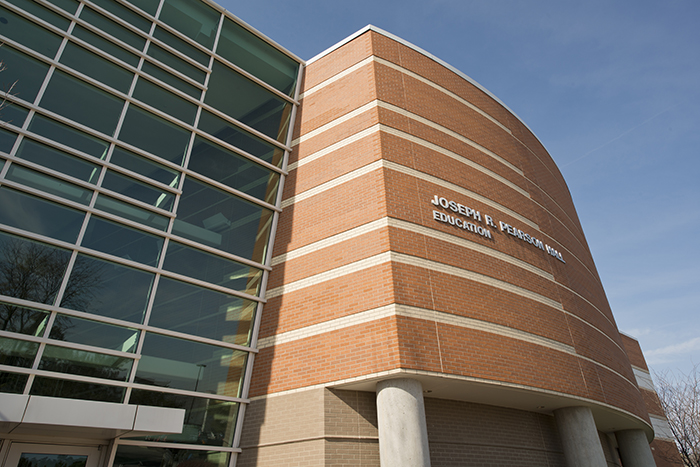KU Leading Project to Aid Students Who Internalized Anxious Feelings from Pandemic
LAWRENCE — The University of Kansas has secured grant funding to conduct a project to look for students with internalizing behaviors who have anxious feelings that may negatively affect their education, and to help teachers implement new strategies to attend to those feelings while re-engaging in school.

As the stress of the COVID-19 pandemic brought with it school closings, remote or hybrid learning and other academic changes, students often lost instructional time and struggled with health and well-being. The Institute for Education Sciences has awarded a four-year, $3 million grant to a KU research team to launch Project ENGAGE: Enhancing Student Engagement to Facilitate Learning and Well-being. The KU Life Span Institute-based project will analyze existing data to determine how internalizing and externalizing behavior patterns may have shifted during the last several years and test “Recognize. Relax. Record,” a new intervention designed to improve outcomes for students with and at risk for emotional and behavioral disorders.
“We will look at data from years prior to the pandemic, during and now to see how internalizing behavior patterns have shifted over the time,” said Kathleen Lane, Roy A. Roberts Distinguished Professor of Special Education at KU and principal investigator. “Building on lessons learned from Project ENHANCE, we’re now digging deeper to learn more about how kids are faring with anxious feelings and how a newly developed, evidence-based intervention can help students, teachers and schools.”
For the first goal of the project, data from approximately 8,000 students in 22 schools in two diverse districts will be analyzed. The second goal will begin with two elementary teachers and a small group of students experiencing internalizing behaviors – specifically anxious feelings. That will be followed by a randomized control trial of Recognize. Relax. Record., also known as RRR, with about 65 teachers and nearly 200 students. Data will be gathered throughout the project to gauge how students who received the intervention fared compared with students in the control group. By the end, all teachers and students will have access to the intervention materials.
RRR is designed for use by teachers, and the KU team will deliver it in the initial phases to reduce workload on educators. It has three primary components, all addressed through explicit instruction. Students learn to recognize or identify thoughts and feelings related to being anxious. They also learn relaxation strategies and to support self-regulation, then record their thoughts and feelings, their use of selected relaxation strategies and their sense of engagement in school activity.
The research team will also analyze data throughout the project for dissemination in public forums, presentations and peer-reviewed publications. If successful, RRR and Project ENGAGE can be scaled for wider use. Co-principal investigators for the project are Mark Buckman, assistant research professor at KU; Wendy Peia Oakes of Arizona State University; and Eric Alan Common from University of Michigan Flint. Buckman and Common are both KU graduates.
Project ENGAGE was funded on the first submission, which Lane said is testament to the skill and dedication of the team.
“We are all very excited about Project ENGAGE, and the support it has received is a testament to the achievements of this talented group and illustrates how KU has continued to thrive during difficult times in education,” Lane said. “Most importantly, we are proud we will be able to work directly with teachers and our amazing district partners to help students to engage in their education and ensure their health and well-being.”
Image credit: KU Marketing